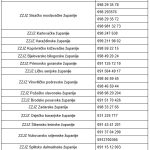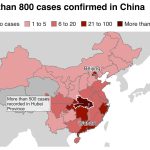
As Frenki Lausic/Novac writes on the 12th of June, 2020, according to an analysis undertaken by the European Systemic Risk Board (ESRB), based on published data on measures taken by national regulators in response to the ongoing coronavirus pandemic, Croatia exceeds the European average with about 40 measures, meaning it ranks in sixth place out of a total of 30 countries in the European Economic Belt.
This information was published by the Croatian Financial Services Supervisory Agency (HANFA). This week, their council discussed the review of financial stability measures taken across the European Union due to the coronavirus pandemic, as well as Hanfa’s measures and recommendations which were issued to Croatian companies.
At the European level, it has been pointed out, most of the measures related to the non-financial sector are aimed mainly at companies, and in the financial sector they’re aimed at credit institutions, securities and markets, as well as at the insurance sector.
Croatia is one of the nine European Union member states, as they emphasised from Hanfa, which, among other measures, adopted a measure on the temporary ban on the payment of dividends for insurance companies and is among the countries with the largest number of measures taken out with the insurance sector in mind. It’s also worth noting that the Croatian National Bank (CNB/HNB) was the first in the entire EU to make a decision to ban the payment of dividends to banks this year.
The report notes: “after looking at the review of these measures, especially those in the financial sector, it can be concluded that Hanfa’s measures and recommendations aimed at the Croatian non-banking financial sector and their users were adequate and timely.
“However, the economic consequences of the coronavirus pandemic on the domestic and international financial markets are still incalculable. However, the current data shows the first signs of recovery – from the return of investors’ payments into investment funds to the increase in the assets of mandatory pension funds that returned to the levels before the global coronavirus crisis in Croatia,” reads a statement from Hanfa.
It has also been added that Hanfa will continue to act in accordance with the guidelines of the European Systemic Risk Board, but also make additional independent recommendations (such as recommendations for a moratorium on leasing companies), depending on the development of the economic situation here in Croatia and the impact on both international and domestic financial services.
For more on coronavirus in Croatia, follow our dedicated section.










